|
Apophyllite Specimens
Apophyllite, whose name roughly means "to leaf apart" in Greek, is a mineral classic. It was given
its name because crystals tend to peel or flake apart when they are heated due to the loss of water molecules. Although not
that well-known by the general public, apophyllite is quite popular among mineral collectors. It has beauty, pastel
colors, a bright luster, interesting well formed habits, unusual associations with other exotic minerals and recently large
amounts of quality specimens have become available from India.
Apophyllite is often thought of as a Zeolite group mineral. However, zeolites are network silicates belonging
to the Tectosilicate Subclass whereas apophyllite is a layered Phyllosilicate. The structural differences aside,
apophyllite does have a lot of similar properties to many of the zeolite minerals. Chief among them is its low specific gravity,
environment of formation and ability to lose water when heated (although it does not have the ability to re-absorb the water
like zeolites). What confuses the issue is that frequently apophyllite and zeolites are associated together in low temperature/low
pressure metamorphic environments.
|
|
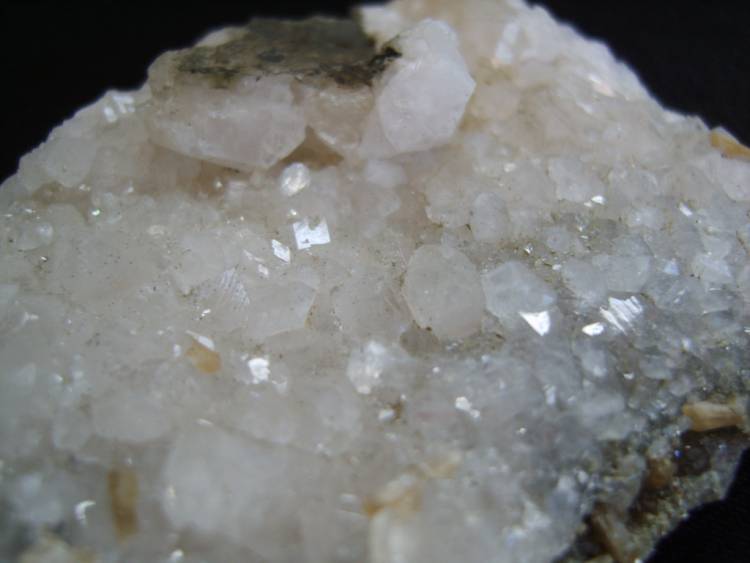
|
| Click on photo to enlarge in new window. |
|
I was recently fortunate enough to acquire a whole cache of zeolites and zeolite related minerals from New Jersey.
Many from locations now closed. This magnificent piece from the Callahan Quarry, Snake Hill, Secaucus, New Jersey was
one of the pieces of this magnificent collection! This piece has small dots of pyrite scattered here and there,
and an occasional very small blade of stilbite. Approx. size: 71x54x13 Weight: 56.9 grams
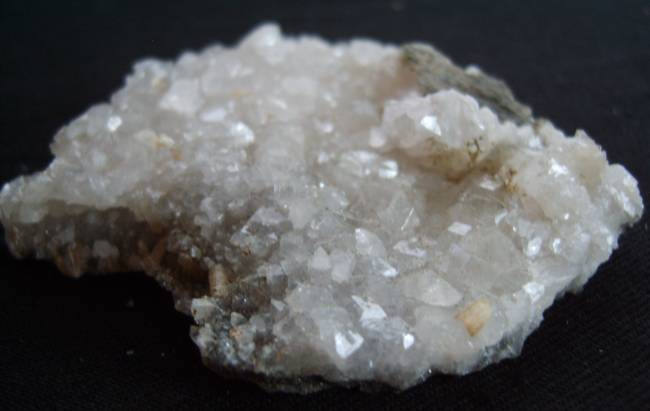
|
| Click on photo to enlarge in new window. |
|
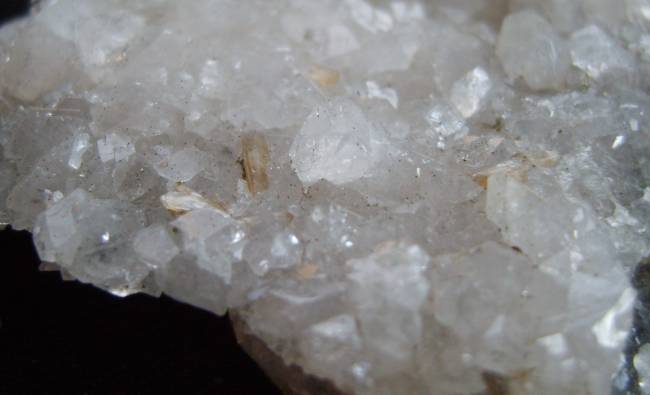
|
| Click on photo to enlarge in new window. |
|
|
|
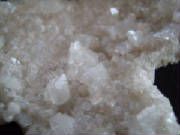
|
| Click on photo to enlarge in new window. |
|
Simply incredible plate of small quartz crystals with shiny "fisheye-like" crystals of apophyllite scattered all over
the top of the plate. Astounding specimen collected by Alan "Bundy" Beres in the Upper New Street Quarry,
Patterson, NJ sometime between the 1930s and 1960s. Approx. size: 170x66x25 Weight: 167.7 gm.

|
| Click on photo to enlarge in new window. |
|
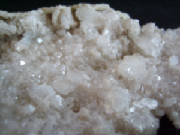
|
| Click on photo to enlarge in new window. |
|
|
|
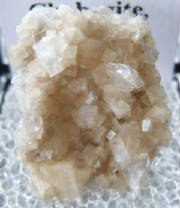
|
| Click on photo to enlarge in new window. |
|
Incredible mounted miniature of combined apophyllite, chabazite and quartz from the well-known Upper New Street Quarry
in Patterson, NJ. Approx. size: 28x22x10 Weight: 4.2 gm.
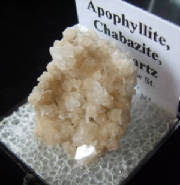
|
| Click on photo to enlarge in new window. |
|
|
|
|
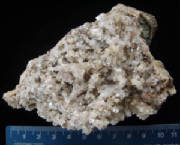
|
| Click on photo to enlarge in new window. |
| Huelandite? |
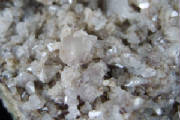
|
| Click on photo to enlarge in new window. |
|
I don't even know where to start with this fantastic specimen collected between 1930s and 1960s by Alan "Bundy" Beres from
the Upper New Street Quarry in Patterson, NJ. This stone came to me with no label and I'm not sure it ever had one.
I can tell you what I think I can identify on it. There are definitely lots of apophyllite crystals showing the typical
"fish-eye" luster. I think there's at least one huelandite crystal near the center and I'm sure there's a few small
dogtooth calcites. There's also a cubic mineral I think is chabazite. I wrote a note to myself when I first got the
piece that I saw some quartz crystals on it too, although I can't seem to find any on there now. However, I don't
want to rule out the possibility. This is an incredible piece!!!!! Approx size: 117x67x35 Weight: 211 gm.
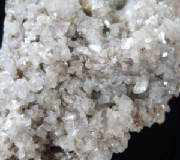
|
| Click on photo to enlarge in new window. |
|
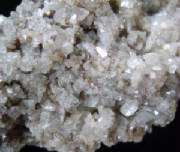
|
| Click on photo to enlarge in new window. |
|
|
|
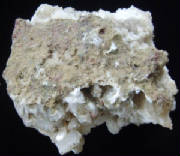
|
| Click on photo to enlarge in new window. |

|
| Click on photo to enlarge in new window. |
|
Here's another piece from the Alan "Bundy" Beres Collection with apophyllite crystals on a piece of crystalline gypsum
from the Upper New Street Quarry, Patterson, NJ. Approx. size: 56x43x27 Weight: 88.6 gm.
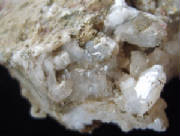
|
| Click on photo to enlarge in new window. |
|
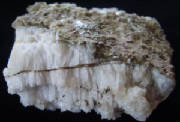
|
| Click on photo to enlarge in new window. |
|
|
|
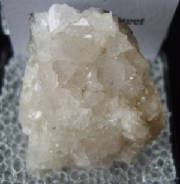
|
| Click on photo to enlarge in new window. |
|
Buy one bunch of daisies - get the second bunch at half price. For best results, give them plenty of sun, frequent watering,
and regular fertilization.
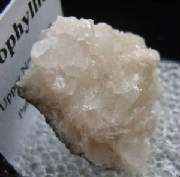
|
| Click on photo to enlarge in new window. |
|
$10.00
|
|

















